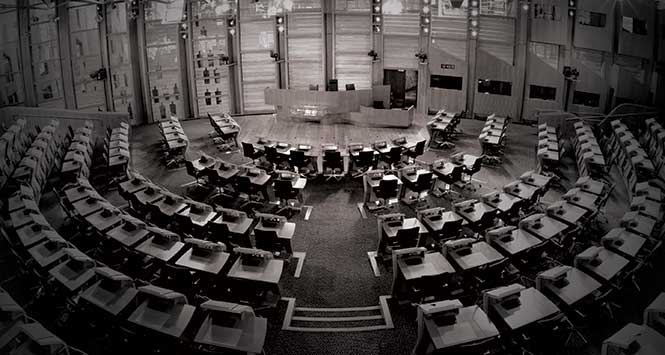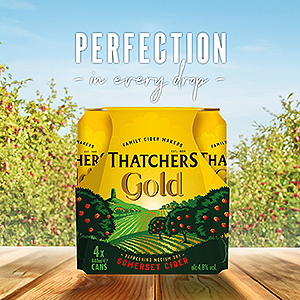The draft Scottish Budget announced in December was a mixed bag for retailers but contains several very worrying developments, including a hike in income tax, that may hinder growth in the convenience sector.
The announcement of the Scottish Government’s Draft Spending and Tax Plans for 2018-19 always had the potential to throw up a few surprises, given the nature of current uneasy relationship between the UK and Scottish Governments and the desire of the Scottish Government to demonstrate that it is prepared to make tough and often unpopular decisions.
The headline-grabbing development was the unveiling of a new five-band income tax system, the first time that the Scottish Government has used its powers to control income tax in the country and a move that contradicts a manifesto promise from the SNP. At first glance, the new rates seem to indicate that those on lower salaries will get a tax cut while those earning higher salaries will pay more. But accountancy industry body ICAS has done some number crunching and concluded that 70% of Scottish tax payers will actually pay less than they do at present, although that does mean that 30% will pay more. Additionally, 55% will pay less than they would if they lived elsewhere in the UK (meaning 45% will pay more under the same circumstances).
Confused? Well, given the fact that the higher-rate threshold is rising by the rate of inflation, people earning £50,000 and above in Scotland will actually be £85 better off per year as less of their income is being taxed at the higher rate.
- Income tax to be restructured into new five band system
- Small business scheme to continue, lifting 100,000 business properties out of rates altogether
- Business tax rate to be will be capped at a level driven by the consumer-price rate of inflation (CPI), not the retail price index rate (RPI).
Another important part of the Draft Scottish Budget saw Finance Secretary Derek Mackay confirm that the small business bonus scheme will be continued, lifting 100,000 business properties out of rates altogether. Mackay says the package for the coming year is worth £720m.
In addition, he also confirmed that the business tax rate will be will be capped at a level driven by the consumer-price rate of inflation (CPI), not the retail price index rate (RPI). The CPI rate is traditionally lower, so businesses are likely to see their rates increases capped at a lower level.
So what precisely will this mean for spending in general, and spending in convenience stores in particular?
In a preliminary response to the Draft Scottish Budget, David Lonsdale, Director of the Scottish Retail Consortium, said: “Prospects for Scotland’s retailers are ultimately determined by the state of the economy and their own ability to adapt and seize on the opportunities that arise. The subdued predictions from the Scottish Fiscal Commission for economic growth over the next few years are therefore sobering, more so as Scotland’s economy has recently underperformed the UK as a whole.
- 21p – New intermediate tax rate from £24,001 to £44,273
- 19p – Starter rate from £11,850 to £13,850
- 20p – Basic rate from £13,851 to £24,000
- 41p – Higher rate from £44,274 to £150,000
- 46p – Additional rate from £150,000
“Lifting private sector investment will be even more critical, and in that context retailers will welcome the Finance Secretary’s decision to limit future rises in the business rates poundage to CPI, rather than RPI. This is positive news that will shave £5m off the rates bills of hard-pressed retailers next year, and more than that in future years. It shows that the Finance Secretary is listening to the retail industry and the growing chorus from across business and commercial life in Scotland who have spoken up in favour of action to mitigate rising rates bills.”
This was a move also welcomed by the Scottish Grocers’ Federation (SGF). Chief Executive Pete Cheema commented: “SGF welcomes the move to using the CPI measure of inflation to assess the poundage for business rates and will work with the Scottish government to take forward the review of the small business bonus.”
Lonsdale also welcomed the decision to reduce tax on lower paid workers. He said: “As the Scottish Government has itself admitted, family finances are under strain and disposable incomes do not stretch as far as they used to as price inflation continues to outstrip the growth in wages. Indeed, with household finances set to be tested further in the months ahead with rises in statutory pension contributions and council tax in the pipeline, the decision on income tax to protect workers on low and modest earnings is exactly right. The implications for consumer spending – a mainstay of our economy – from the £164 million uplift in the income tax take remains to be seen, but less money overall in consumers’ pockets is likely to cause shoppers to carefully consider what purchases they can afford. It may also have implications for VAT revenues which are being assigned soon to Holyrood.”
The SGF however was less pleased with the decision to change the income tax structure. Chief Executive Pete Cheema said: “It is absolutely clear how important consumer spending is to the wider economy. At a time of zero wage growth and rising inflation it makes no sense to increase taxation. This could seriously impact on sales in the convenience sector.”






